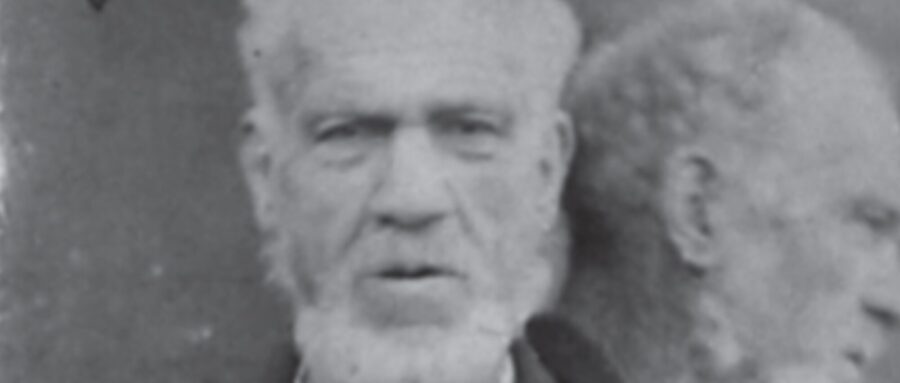On 29th June 1904, Daniel Baker was brought to the quarter sessions at Shire Hall, charged with stealing a shirt in Nether Compton, Dorset. This would be his 59th appearance in front of a magistrate, his 8th time at Shire Hall, and the last time he would find himself on trial, at the age of 84.
Daniel Baker lived a long life of crime. Native to Lydlinch in Dorset, he was also convicted across Somerset and Wiltshire. Records don’t tell us much about Daniel’s life outside the court, aside from that he was married and by 1873, had seven children and was described as a labourer.
His first convictions had been for public nuisance: breach of the peace (starting fights with members of the public), assault, and drunkenness. Later, in 1864, Daniel would be charged with leaving his family chargeable to the parish, and vagrancy (meaning sleeping rough).
Many of Daniel’s offences also came from stealing. Between 1868 and 1902, he was found guilty of stealing 22 times. Showing how bad things had become for him at this point, upon being arrested for stealing in 1895 at the age of 75, Daniel is quoted as: “I dare not beg nor steal, but I am not going to starve”.
As Daniel became older, magistrates and judges showed him leniency. One judge stated: “It was a shocking thing that an old man like you should finish your days in prison”. Despite this unusual kindness, Daniel would be committed at least seven more times before his final appearance in 1904.
Unlike Daniel’s other appearances before the magistrate, when he came to Shire Hall for the final time, the prosecution did not offer an opening statement. Instead, they informed the court that the Medical Officer of the county gaol “had concluded that the prisoner was not in a position to plead”.
Dr. Hefferman, the Medical Officer, explained that Daniel was suffering from ‘paralytic insanity’, following a stroke, causing him to have “delusions of persecution… about Satan in hell”. It was also reported that Daniel “uses his urine to wash his cell floor, tears up his clothes without being about to account for the reason why. Covers himself with salt allowed him for meals and uses the most obscene language”.
For Daniel to be labelled as criminally insane, and therefore unable to make a plea, a jury had to be brought in to decide on his state of mind. Cases of criminal lunacy were treated very seriously by the court, as it would strip a prisoner of their right to trial by jury. Dr. Hefferman’s evidence proved enough for the jury and judge, however, who deemed him of “unsound mind”
The Criminal Lunacy Act (1800) had put in place provisions to move those considered criminally insane into local ‘lunatic asylums’. With the Home Office’s approval, Daniel was moved to Herrison Asylum, the county institute for Dorset, on 5th July 1904.
Upon inspection at Herrison Asylum, Daniel was described as “a bit of a rogue”. With no teeth and a cataract which left him blind in one eye, Daniel was admitted into the ‘pauper’ section of the Asylum. Further inspection revealed that Daniel was now suffering with ‘senile dementia’.
When in Herrison Asylum, Daniel appears to have appreciated the basic comforts provided to him, something which would have been alien to him after living a life of vagrancy and crime.
There is little evidence, however, that any treatment was given to the patients of Herrison Asylum, aside from in cases of physical illness. After around a fortnight, Daniel’s behaviour and mental state deteriorated, becoming more argumentative, childish and discontent. No special care was developed for patients living with senile dementia until the middle of the 20th century, allowing Daniel’s mental state to get worse and worse.
On the 3rd July 1906, Danial Baker passed away in Herrison Asylum. A post-mortem revealed his cause of death to be ‘senile decay’, considered a natural cause. Unlike other inmates, Daniel’s body was returned to Lydlinch, where he was buried in his home parish, possibly back to his family.
Throughout his life, Daniel Baker was considered an ‘incorrigible rogue’, someone who repeatedly found themselves inside the court. True of so many people who found themselves in the dock, however, crime was for many people their only means of survival.


